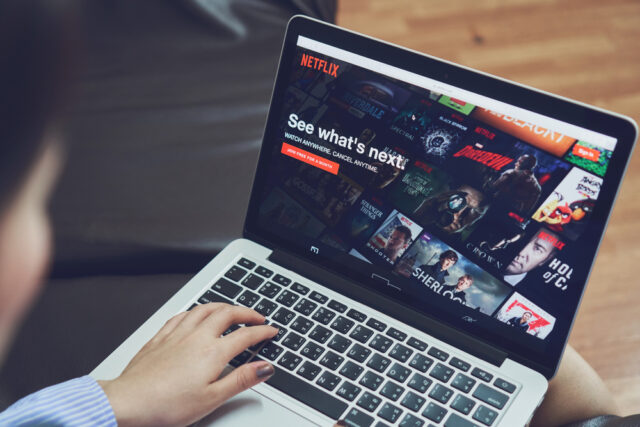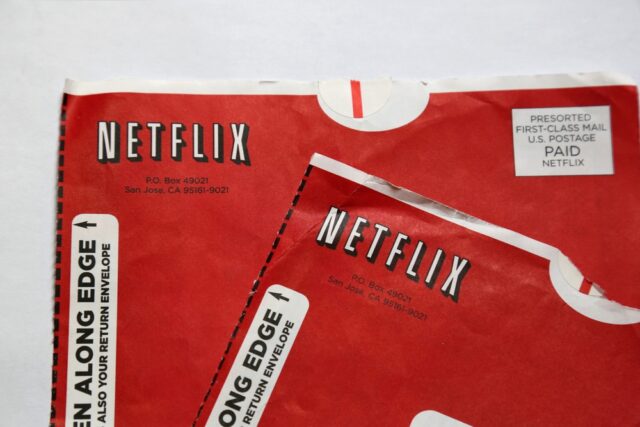
The list of companies that failed to pivot when their industries underwent major changes is long.
Blackberry couldn’t pivot to touchscreen smartphones.
Kodak couldn’t pivot to digital photography (ironic, since Kodak invented the first digital camera in 1975).
Blockbuster couldn’t pivot to streaming.
The story of how Blockbuster had a chance to purchase Netflix in 2000 for $50 million is perhaps the biggest business whoops of all-time (though if you think the Netflix we know today would exist under Blockbuster’s stewardship, you’re missing the entire point).
While I’ve always been fascinated by Netflix’s ability to move away from its core DVD-by-mail business to become a streaming and content-producing powerhouse, I never knew until now just how brutally they did so.

Photo credit: Shutterstock/sitthiphong
In a recent New York Times interview, Netflix CEO Ted Sarandos discusses the company’s evolution and the realization that their DVD business (which was doing very well) would not last forever.
“In periods of radical change in any industry, the legacy players generally have a challenge, which is they’re trying to protect their legacy businesses. We entered into a business in transition when we started mailing DVDs 25 years ago. We knew that physical media was not going to be the future. When I met Reed Hastings in 1999, he described the world we live in right now, which is almost all entertainment is going to come into the home on the internet. And he told me that at a time when literally no entertainment was coming into the home on the internet. And it really helped us navigate this transition from physical to digital, because we just didn’t spend any time trying to protect our DVD business. As it started to wane, we started to invest more and more in streaming. And we did that because we knew that that’s where the puck was going. At one point, our DVD business was driving all the profit of the business and a lot of the revenue, and we made a conscious decision to stop inviting the DVD employees to the company meeting. We were that rigid about where this thing was heading.”
“We made a conscious decision to stop inviting the DVD employees to the company meeting.”

Photo Credit: Shutterstock.com/yuriyt
As a manager, I’m not sure I could ever be that cutthroat. But I can’t entirely pick it apart. When your entire universe, knowledge base, and salary comes from one thing, it certainly can color and bias your view of a new thing that’s going to destroy the thing that’s your current lifeblood.
Sarandos acknowledges how harsh it sounds, but explains, “It got the whole company in the mindset that we shouldn’t keep investing in the old business. It’s going to prevent us from investing in the new business, and the new business is going to get us to the next place.”
There are obvious parallels to other industries. And though I’m not suggesting you start disinviting members to company meetings, the Netflix lesson makes it abundantly clear that brand and industry evolution on this scale requires dramatic internal philosophical and cultural change.

Jay, this is a really thought-provoking article. Thank you for sharing!
Appreciate it, Jon. Thanks for reading!